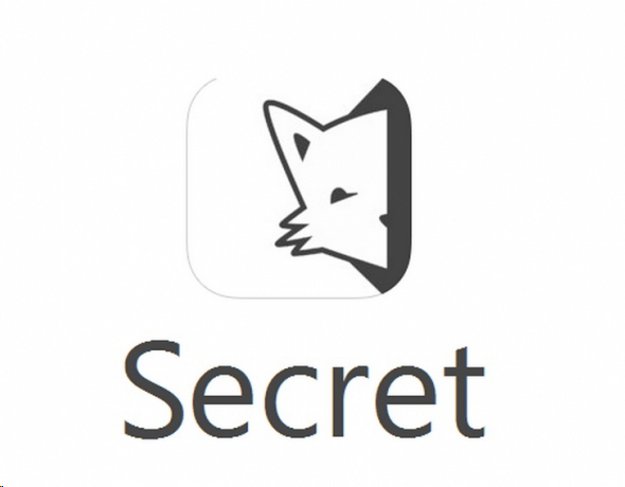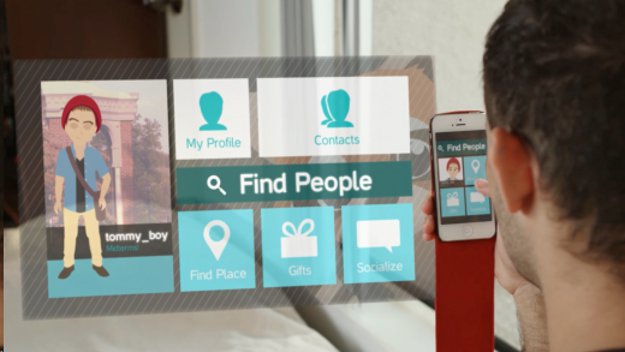Move Over, Facebook: Welcome to the World of Anonymous Apps

Today, our social media identities are deeply intertwined with our non-digital one, and the rise of social media has bred new kinds of problems. For Internet-goers, issues such as online privacy, Internet surveillance and data collecting have now become pertinent in their daily lives. It is in this climate of NSA snooping, data collecting and social media experimenting, that a new form of social networking has formed, an anonymous one.
The last year has seen the emergence and popularity of anonymous social networks and apps such as Secret, Whisper and Anomo that promised users anonymity and a diminished digital trace. These anonymous networks seem to be a cultural reaction to the oversaturation of social media and the invasions of privacy on behalf of the corporations and the government. As people become more and more aware of just how permanent and sellable the digital footprint really is, there is a new consciousness growing within the online self. People are seeking an online persona that caters to their privacy, and these new, anonymous social networks provide that growing need of online discretion.
The increasing need for privacy on behalf of Internet-users comes from a combination of things. The first one being that people have grown wary of the “traditional” forms of social networking like Facebook where feeds are oversaturated with over-sharing statuses and selfies.
Whatever is shared on these traditional social networks now automatically becomes an extension of one’ s real self. This not only blurs the lines creating no separation between the familial, work and personal, but it also provides no space for self-expression or creativity without it carrying consequences into “real” life. This creates an increasing need to find an alternative niche where people can vent and communicate freely.
The second is the awareness on behalf of users that the information they are sharing online does not belong to them. There is a realization on the side of users that their online information is valuable to the government, data marketers and big corporations like Facebook. The latest examples are the online experiments conducted on behalf of Facebook in which the company tracked users’ emotions based on Facebook statuses. The same violation of privacy was seen with OkCupid where the dating site purposely set up bad matches in order to see how users would react to being mismatched.

In addition to these social experiments, there has been a growing awareness post-Edward Snowden, that the government and the NSA are monitoring social media.
The combination of the NSA snooping and the general misuse of personal information on behalf of big corporations has spurred a growing desire for users to take control over their personal information shared online. In contrast to mainstream social networking that values experimenting and over-sharing, the new anonymous apps and social networks like Secret, Whisper and Anomo seem to be the online counterculture. These networks effectively provide a space where people can find freedom of expression and privacy while protecting users from prying eyes and Big brother-like corporations.
These anonymous apps have also brought about a new way of interacting online, and they are now being referred to, as “the third wave” of social networking. This is key, because the simple element of anonymity is not enough for Internet users, there is still a need to be a heard and to be part of a community. Out of the crop of anonymous apps and social networks that have popped up during the last three years, the three main ones are Whisper, Secret and Anomo.
Whisper lets its users send and receive anonymous messages and they do not have a public identity on the mobile app. Meanwhile, its competitor Secret acts like an anonymous Pinterest in that people can post anonymous messages on community boards. Then there is Anomo, a social networking app that allows users to interact via ice- breaker games while using anonymous avatar identities. And while all these networks and apps have different features, they all offer the features of anonymity and community to its users.

In addition to their cultural value, Whisper, Secret and Anomo, have huge monetary values as well. This past year alone, Whisper has seen 36 million dollars in funding, garnering a total of $60 million since being founded merely two years ago. Meanwhile, Secret secured $10 million round in funding from notable names such as Google Ventures, giving it a valuation of $50 million this past spring. (The app launched only seven months ago.) Anomo also announced a round of investment this past August from a group of high-profile investors, including Orca Bay Capital and Maveron.
Like with any new technology, problems have arisen already within this emerging category of anonymous apps that bank on users’ search for privacy and need to share freely and anonymously with each other. Apps like Whisper and Secret have seen their share of online bullying problems as the anonymous forums and messaging create a lack of accountability on behalf of its users and community. For example, Secret has come under fire for cyber-bullying and has even been accused of “being too busy raising money” to care about teen suicide warnings. Meanwhile, Whisper’s CEO was put under the spotlight for the app’s claims that actress Gwyneth Paltrow had been cheating with lawyer Kevin Yorn.
Amid all this anonymity, the biggest question mark within the anonymous app space is whether these new social networks really protect users’ privacy. A recent study by the Global Privacy Enforcement Network showed that 85 percent of apps did not clearly explain how they are collecting and using personal data.
In addition, the study reflected that 60 percent of apps raised privacy concerns, failing to provide users with basic privacy protections. This study makes one wonder as to what the real privacy settings of anonymous apps are. While these anonymous networks vow to keep users anonymous, personable identifiable information such as gender, sexual orientation and age can still be gathered. Which brings forth the question as to whether these anonymous mobile apps are producing a real third wave of social networking, or merely a ripple in the online experience.

Author Bio:
Veronica Mendez is a contributing writer at Highbrow Magazine.





























































































































































































































































































































